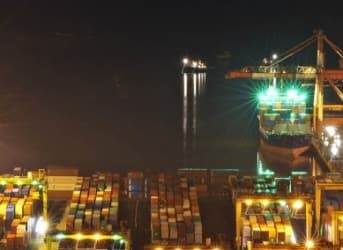The story of commodities in the new millennium so far has largely been driven by China. For over fifteen years, rapid Chinese growth and industrialization brought a tremendous amount of demand for fossil fuels and metals around the globe. However, as China’s growth has declined slowly but steadily, demand for commodities has also waned, with enormous ramifications for commodity producers.
Firms like Caterpillar, Joy Global, and Terex have seen demand for their machinery decline. Fertilizer companies like Mosaic and Potash have felt the sting of both cartel breakdowns and the Chinese slowdown. Ocean-going freight firms have seen dry bulk prices plummet.
But perhaps no group of firms has been hammered by China’s mismanaged deceleration like the global mining sector. The Chinese government, in typical fashion, has not been transparent about their objectives or views regarding the economy. The party line has been one of a transition from investment growth to consumption growth, but so far the process for making that transition has been pretty bungled. Further, the extremely high savings rates of Chinese consumers are making the transition even harder. Related: 2015 Could Be The Year Of Peak Oil
The inconsistent transition from investment in infrastructure to consumption has led to severe reverberations inside and outside of China and a huge glut of many commodities within the country. This glut and the transition to consumption are leading to major financial strains for some Chinese firms, and it has also led to the complete collapse in demand for many commodities in China. No one expects this situation to turn around in the near future, which among other things, has also led to excess capacity in the dry bulk shipping markets.
Investors in natural resources need to be aware of these challenges and invest accordingly. Firms like Rio Tinto and BHP are handling the changing landscape well, while firms like Vale and Cliffs Natural Resources are doing an abysmal job thus far. Quality of management and operational efficiency matter a lot in this type of environment, and investors need to do substantial research lest they find themselves with buyer’s remorse. Related: China’s Energy Demand May Not Increase Until 2017
Within the industry, valuations are very low at this point – approaching trough levels – but the question is when the overall macro backdrop will start to improve. There may be some tentative green shoots starting to emerge in China as the supply glut works its way out. And while China’s growth rate is slowing into the 7 percent annual range, the economy is so large, that even a 7 percent growth rate still translates to a substantial uptick in demand, easing the surplus of capacity. But that could take a couple of years before things start to return to normal. Industry executives are warning investors not to expect a fast turnaround.
The other source of hope for investors in the space is India. India is every bit as big as China, and while the country is much poorer, this also means greater opportunities for growth in the future. Related: What Oil Export Ban Means for Investors
For years, India has disappointed expectations, performing far below its potential. But new Prime Minister Narendra Modi and Central Banker Rajan are doing excellent work in making the country an attractive investment environment. India’s growth rates are being revised higher, and for the first time in many years, there is a good chance that India will grow faster than China on an annualized basis.
This is not a panacea for the Chinese conundrum commodities markets face, but it does mean that there is substantial reason for long-term optimism in commodities. Long-term investors should take notice.
By Michael McDonald of Oilprice.com
More Top Reads From Oilprice.com:
- Could $12 Trillion Trigger A Renewables Revolution?
- The Best Play In Solar Right Now
- Shale Resources Key To Deciding Argentina’s Future


















